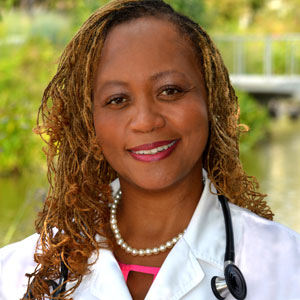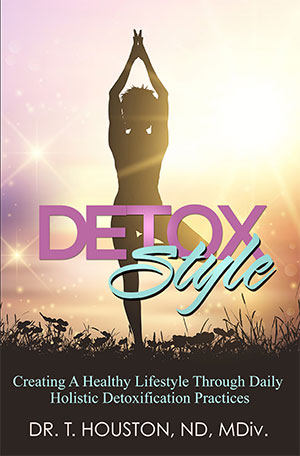Ministry and Medicine
October 13, 2017 | Alumni, Public, Spiritual Life

Tawainna Houston ’98 MDiv discusses the importance of self-care, how her seminary education continues to benefit her as a naturopathic physician, and the role the church plays in honoring our whole beingness.
Q: What inspired you to marry ministry with medicine? And what does that mean?
A: Marrying ministry with medicine means merging together two different disciplines into one holistic service of work. During my medical training studies, the more I understood how the body works on a cellular level and the more I learned about its natural design to be in internal balance, to coexist with its external environment, and to self-heal, the more I felt the love of God for creation. As a second-career medical student I had the unique opportunity to learn medicine through a theological lens, and it became very clear upon entering medical school that God would transform it into a ministry.
Q: How did your time in seminary inform the path of your ministry?
A: While attending PTS my primary focus was on pastoral care and counseling because I have always had an interest in educating, motivating, empowering, and supporting others into a better version of themselves. As a naturopathic physician, I am continuing along the same path, working with both physical and spiritual ailments.
Q: For people who may not be familiar, what is lifestyle medicine and what is the benefit?
A: The significant increase in chronic diseases such as heart disease, cancer, and diabetes directly correlates with a decline in nutrition and an increase in sedentary jobs and activities. Lifestyle medicine provides patients with education, resources, and accountability to help them make realistic and optimal changes in their day-to-day habits—choices that will positively enhance their health and wellness. Those habits can include improved dietary choices, regular exercise, sufficient sleep, and stress management techniques. Consistently maintaining these habits will lead to a lifetime of benefits.
If our whole selves are healthy, we can devote more of our time, energy, and resources to building God’s kingdom here on earth.
Q: Why is it important for the church to be engaged in raising awareness of honoring our whole beingness?
A: I have often heard the church referred to as “a hospital for wounded souls,” but many of those wounded souls also have wounded bodies. If our whole selves are healthy, we can devote more of our time, energy, and resources to building God’s kingdom here on earth. What better place to hear, receive, and demonstrate that message than the church?
Q: Tell us about your book. Who can benefit from reading it?
A: Detox Style (CreateSpace Independent Publishing, 2016) teaches readers how to maintain good health in a toxic world. Detoxification is introduced both holistically and as a lifestyle with examples of what you can do at regular intervals to keep the mind, body, and spirit holistically detoxified. Readers will walk away with a comprehensive understanding of the most common toxic factors that impact daily health, how to reduce controllable toxic exposures, and how to support detoxification pathways within the body for improved health.

Q: If someone isn’t familiar with a holistic lifestyle, how can he/she get started with connecting his/her body, mind, and spirit?
A: It is important to not compartmentalize how we practice self-care and self-nurturing. The mind, body, and spirit are all equally important and should be supported as the synergistic forces that they are. Therefore, intentionally nurturing each aspect of self will lead to holistic state well-beingness.





